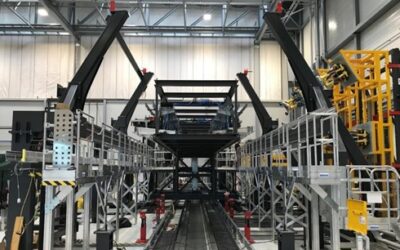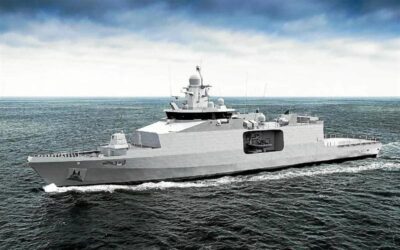This European initiative, called A-MELIUS (Additive Manufacturing of functional and Effective Light Use-caseS), aims to increase the functionality of aeronautical components manufactured using 3D printing, and bring lighter, more sustainable and economical solutions to the industry.
The project has already entered one of its final phases, moving closer and closer to the goal of obtaining components that are from 30% to 60% lighter, 30% cheaper and that also use a one-shot manufacturing process that reduces assembly, and therefore complexity, by up to 50%.
Ángel Luis Téllez, CT’s Project Manager, explains that “it’s a value-added proposal for metal parts fabricated using conventional methods, that incorporates new technologies, such as topological optimisation and the improvement of surface properties by laser treating those surfaces. We’re very pleased to contribute our know-how to this initiative, in addition to acquiring new design and manufacturing capabilities with new advanced materials, to maintain our leadership as suppliers of the main industrial companies. This process isn’t just for the aeronautical industry; it can be implemented in different industries.”
CT will participate in the analysis, design, calculation and topological optimisation of the demonstrators, the development and simulation of the process, the complete characterisation of the properties and the final validation of the parts obtained by additive manufacturing, in addition to the subsequent application of surface laser treatment.
The value proposition of A-MELIUS
The A-MELIUS project analyses and studies the use of alloys that are currently being certified for additive manufacturing technology, in addition to the application of new surface modification processes to improve the fatigue response and corrosion resistance of the materials. It is also studying the introduction of new hydrophobic capabilities to prevent the build-up of water or ice on critical components. All in addition to the design of new components with optimised fatigue strength that will make it possible to reduce the weight of these structures.
The main objective of the A-MELIUS project involves providing new technical improvements to products and processes that are not yet firmly established in the aeronautical sector.
Specifically, several use cases for parts that are currently fabricated out of titanium or aluminium have been selected to carry out the project and validate the proposed technological solutions.
Different aspects of the demonstrators will be changed to improve their performance in comparison with the current state of the art. One of these is the reduction of surface roughness using laser treatments that improve the fatigue performance of the components. The functionality of the parts will be addressed by topological modification of the surfaces, such as hydrophobic surfaces that repel the formation of ice and contaminants for easy cleaning and to reduce aerodynamic resistance. The improvement of corrosion resistance will also be considered. After the different concepts have been demonstrated at the test tube level, demonstrators will be developed with additive manufacturing for each technology according to their service requirements.
About A-MELIUS
A-MELIUS, with a budget of approximately €900,000 and a total duration of 3 years, is part of the M-ERA.NET Call 2018. The company FADA-CATEC leads this European consortium formed by Airbus (Germany), CT, the Dresden University of Technology and Pulsar Photonics. The Spanish consortium is led by CT and complemented by FADA-CATEC, together with the research body AICIA, as the Research Centre and is funded by the Andalusian Innovation and Development Agency (IDEA).




